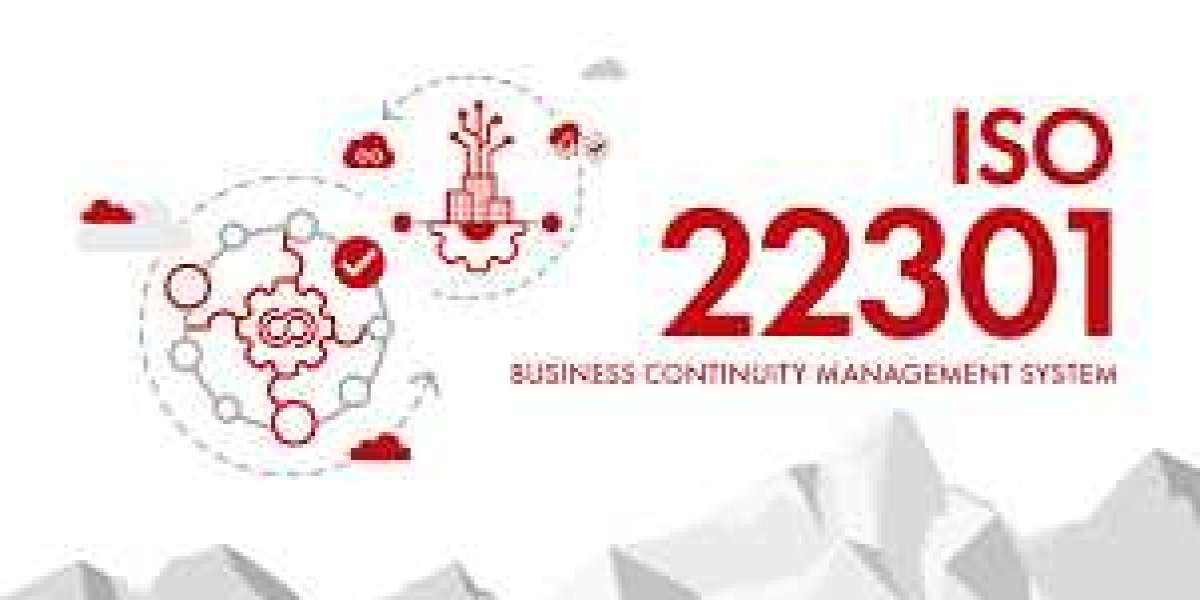In today’s volatile world, where risks like cyberattacks, natural disasters, and supply chain disruptions threaten organizational operations, business continuity has become a critical focus. ISO 22301, the international standard for Business Continuity Management Systems (BCMS), helps organizations ensure resilience. A key step for professionals aiming to excel in this field is completing the ISO 22301 Lead Auditor Course. This article explores the course, its structure, benefits, and its role in career development.
1. What Is the ISO 22301 Lead Auditor Course?
The ISO 22301 Lead Auditor Course is a specialized training program designed for professionals who want to gain in-depth knowledge of auditing Business Continuity Management Systems. It equips participants with the skills to assess an organization's ability to manage and recover from disruptions while adhering to the ISO 22301 standard.
The course covers critical concepts like risk assessment, business impact analysis, recovery strategies, and continuous improvement within a BCMS framework. It also provides practical insights into conducting audits based on ISO 19011 (guidelines for auditing management systems) and ISO/IEC 17021 (requirements for certification bodies).
This course is ideal for business continuity managers, auditors, and consultants who want to deepen their expertise and contribute to organizational resilience.
2. Key Components of the Course
The ISO 22301 Lead Auditor Course typically includes the following components:
- Introduction to ISO 22301: Participants learn the principles, structure, and key clauses of ISO 22301, along with its relevance in business continuity planning.
- Auditing Techniques: The course delves into best practices for planning, conducting, and reporting audits. It emphasizes techniques for interviewing, gathering evidence, and identifying nonconformities.
- Risk Management and Business Continuity Planning: Training modules explore risk management methodologies, business impact analysis, and the development of continuity strategies.
- Practical Exercises and Case Studies: Participants engage in real-world scenarios to practice auditing and problem-solving skills, enhancing their ability to apply theoretical knowledge effectively.
- Certification Exam: At the end of the course, participants must pass a certification exam to demonstrate their understanding and earn the Lead Auditor credential.
The course is usually conducted over five days and combines classroom learning with practical assessments.
3. Benefits of ISO 22301 Lead Auditor Certification
Completing the ISO 22301 Lead Auditor Course offers several benefits for both individuals and organizations:
For Individuals:
- Enhanced Career Opportunities: Certified Lead Auditors are highly sought after by organizations looking to strengthen their BCMS.
- Global Recognition: The certification is internationally recognized, enabling professionals to work in diverse industries and regions.
- Advanced Skills: Participants gain expertise in auditing techniques and business continuity, making them valuable assets to their employers.
For Organizations:
- Improved Resilience: Having a certified auditor ensures that the organization’s BCMS is effective and continuously improved.
- Regulatory Compliance: Organizations can meet regulatory requirements and industry standards by adhering to ISO 22301.
- Enhanced Reputation: Certification boosts stakeholder confidence by demonstrating a commitment to risk management and business continuity.
4. How to Choose the Right ISO 22301 Lead Auditor Course
Selecting the right training provider is crucial for maximizing the value of the ISO 22301 Lead Auditor Course. Here are key factors to consider:
- Accreditation: Ensure the training provider is accredited by a recognized certification body, such as PECB or IRCA, to ensure the quality and credibility of the certification.
- Experienced Trainers: Look for courses taught by industry experts with practical experience in business continuity and auditing.
- Comprehensive Curriculum: Choose a course that offers a balanced mix of theory, practical exercises, and case studies.
- Flexibility: Many providers offer online, in-person, or hybrid formats to cater to different learning preferences and schedules.
- Post-Certification Support: Some providers offer ongoing support, networking opportunities, or refresher courses to help professionals stay updated on industry trends.
Conclusion
The ISO 22301 Lead Auditor Course is an invaluable investment for professionals seeking to enhance their expertise in business continuity management and auditing. By gaining certification, individuals can contribute to organizational resilience, ensuring preparedness in the face of unexpected disruptions. Organizations, in turn, benefit from having skilled auditors who can maintain robust BCMS practices. In an unpredictable world, mastering ISO 22301 principles is a strategic step toward safeguarding operations and building trust with stakeholders.














